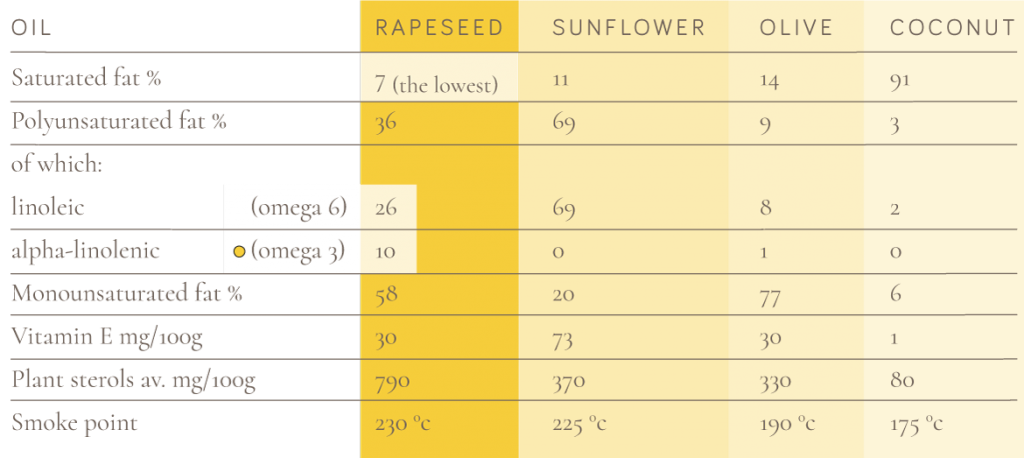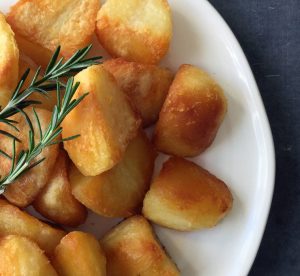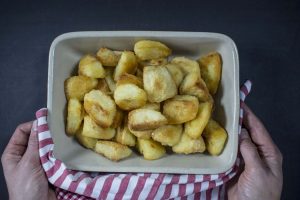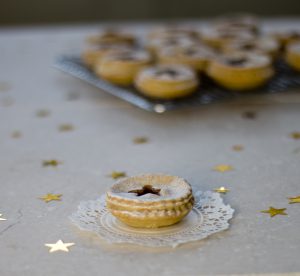The rapeseed crop has been grown in Britain for a number of centuries, in fact, it was first introduced to the UK by the Romans. Rapeseed is a brassica and is related to such plants as the cabbage, mustard and turnip for example. Rapeseed became a popular crop in the UK from the 1970’s, as farmers were encouraged to grow it due to increasing demand for a refined British rapeseed oil by food manufacturers, as an alternative to other imported refined oils. The oil also became popular in Canada and the USA and became known as canola oil.
Rapeseed continued to be used purely as a refined oil until 2005, when Duncan Farrington became the UK’s first seed-to-bottle producer of cold pressed rapeseed oil. After studying the oil as part of his degree, he was fascinated by the health and culinary benefits when it was cold pressed. So, in 2005 he set up a small press on his family farm and started cold pressing the rapeseed grown in his fields. The oil was a huge success and British cold pressed rapeseed oil is now a store cupboard staple for many households up and down the country.

Benefits of cold pressed rapeseed oil
– Half the saturated fat of olive oil and ten times less than coconut oil
– Healthy balance of Omega 3, 6 and 9
– 10 times more Omega 3 than olive oil
– A rich source of vitamin E
– Contains plant sterols and phenols
– High smoke point of 230°C
– Subtle, nutty flavour with buttery notes
Producing British Rapeseed Oil
We are so proud to produce British rapeseed oil. As we grow, press and bottle our Mellow Yellow oil on our farm in Northamptonshire, it is truly British. Normally planted in August, a rapeseed crop is incredibly difficult to establish as it needs perfect conditions for it to survive the first couple months as it emerges through the soil. To ensure success the crop requires a combination of good soil nutrition and structure; moisture in the soil (but not too much); warm soils, ideally over 9°C; no pests, especially Cabbage Flea Beetles and Slugs, both of which find newly emerged tender leaves incredibly delicious and can decimate a crop in a matter of days. Later in the winter months, pigeons also enjoy eating the leaves which we try to stop with bird-scarers.
If the farmer’s skill, along with a bit of mother nature’s help get the crop through to the spring, then rapeseed starts looking after itself as the days lengthen and the weather warms. From late February onwards it starts waking up and literally grows before your eyes, going from a small cabbage like plant to something over a metre tall in a matter of weeks. By April the crop starts flowering, giving the countryside the recognisable yellow fields. The flowers are pollinated by native bumble bees, to produce the tiny black seeds ready to harvest some eleven months after the crop was first planted.
As well as the weather affecting the growth of the rapeseed crop, weather conditions at harvest time also affects the quality of the finished oil. Ideally the seeds need to be harvested in cool dry conditions, as moist warm conditions will spoil the crop and encourage the growth of moulds. Once harvested, the seed is stored with the moisture and temperature carefully controlled to ensure the seed is keep in the best possible condition, ready to be cold pressed to make a deliciously healthy, quality British rapeseed oil.
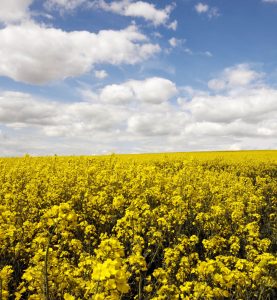
Where to buy British Rapeseed Oil
Farrington’s Mellow Yellow Rapeseed Oil is available nationally from Booths, Morrisons, Ocado, Sainsbury’s, Waitrose and many independent farm shops and delis. In order to find your local stockist, visit our Where to Buy page and just enter your postcode.

We are often asked at Farrington’s what is meant by the term ‘cold pressed’ in Farrington’s Mellow Yellow cold pressed rapeseed oil? A good question that does need some explaining.
Extracting oil from seeds and fruits such as rapeseed and olives is one of the world’s oldest forms of food processing. This along with grinding seeds into flour from wheat or making alcohol from barley for beer, or grapes for wine. The traditional method to extract oil is by mechanical ‘cold pressing’. If you have enjoyed a Mediterranean holiday, you may have seen an old big wooden olive oil press in the middle of a village square. Fresh olives would be poured into the press, a donkey would walk in a continual circle and the press would squeeze the fruit until the oil came trickling out.
In Britain we don’t grow olive trees, but we do grow rapeseed and have done since the Romans first brought it here over 2000 years ago. No doubt they would have used something similar to the donkey driven press to extract oil from the seed. However, for the last hundred plus years, oil has been extracted from seeds in Britain mainly by the industrialised method known as the ‘pre-press solvent extraction process’. This was developed as a highly efficient system of extracting oil, using high temperatures around 85°C, with the addition of a solvent (think of nail varnish remover or paint thinners), following which the oil is degummed, neutralised, dried, bleached and deodorised. Although this is a complicated process, it is a highly efficient way to extract large volumes of refined oil cheaply, with the resulting bland, colourless oil being ideal for many food manufacturing processes, as it does not flavour or colour the foods being made.
Many oils are produced in this way the world over, including olive oil, sunflower oil, groundnut oil, corn oil, rice bran oil, as well as rapeseed oil.
It wasn’t until the advent of package holidays in the 1970’s, that we started to become aware of more exotic types of culinary oil and other exotic foods. This resulted in British food starting to get a bit more colourful and a little less bland. By the time I launched Farrington’s Mellow Yellow in 2005 as Britain’s first ‘seed-to-bottle’ cold pressed rapeseed oil, people were happy to give cold pressed rapeseed oil a go.
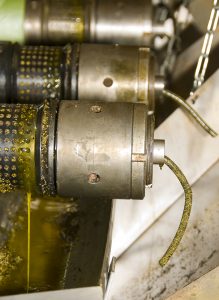
Going back to the original question of what does ‘cold pressed’ mean and why is it better…
Firstly, cold pressed is just that, we simply squeeze the seeds mechanically to extract the pure oil, without any additional heat being used, then pass the oil through filters a bit like a large tea strainer to remove any sediment. This means that the process is slow and inefficient compared to the refined process, so less oil is extracted from the seed. As a comparison, our cold pressed rapeseed oil leaves around 12% oil in the seed, whereas the industrialised method will only leave around 1%. However, nothing is wasted. Once the seed has been pressed, the leftover seed husks are shaped into rape meal pellets and given to farm animals as nutritious feed.
Additionally, cold pressed oils retain their natural character as nature intended. The most obvious being a superior taste and appearance compared to a refined oil. Cold-pressed rapeseed oil has a mild taste with subtle nutty or seedy flavours. Farrington’s Mellow Yellow, for example, has flavours of raw groundnuts, hazelnuts or sunflower seeds, whilst this flavour is underpinned by buttery undertones. Some people can taste the buttery flavour and not the nutty one. Mellow Yellow is also clean and light on the tongue, with no bitter aftertaste. These subtle or mellow flavours make it ideal to be used as a salad dressing oil, allowing the ingredients it is mixed with to come through, giving a different character to a dressing made with an olive oil, for example. Whilst the same mellow flavour makes the oil ideal for all types of cooking from baking breads and cakes, to seafood recipes and, also for roasting and stir-frying vegetables.
Rapeseed oil is naturally yellow in colour hence the name ‘Mellow Yellow.’ This is down to the presence of carotenoids. Carotenoids play important roles in the prevention of various types of cancers, heart disease and eye health. People are increasingly looking for benefits from natural sources of carotenoids found in several unprocessed foods. Cold pressed rapeseed oil mainly consists of a carotenoid group called luteins, important for healthy eye function. This is almost completely removed in refined oils.
Plant sterols are another health promoting micronutrient found in cold pressed rapeseed oil, shown to help lower cholesterol levels. Although the sterol levels in rapeseed oil are too low to make official health claims, it is an excellent source compared to other oils. Again, however many of these important micronutrients are lost in refined oils.
Whether it is the delicious taste, the wonderful colour, the knowledge that you are enjoying pure, unadulterated food with its naturally healthy properties, or just the fact that a cold pressed oil reminds you of holidaying in Greece, there are no end of reasons to use Mellow Yellow cold pressed rapeseed oil. There is a genuine difference in the provenance of cold pressed oils compared to their bland and less exciting refined versions. And, research shows that consuming cold-pressed unrefined rapeseed oil is an important part of a healthy diet and lifestyle.
For more information on our Mellow Yellow Cold Pressed Rapeseed oil, click here and to find out where to buy our Cold Pressed Rapeseed Oil you can use out Store Finder here.
In May this year, when our rapeseed fields were looking their best in full bloom, Nadiya Hussain and a filming crew from Hungry Gap Productions came to Bottom Farm to learn more about how we produce our cold pressed rapeseed oil. The reason for the visit was to film a segment for Nadiya’s new series, Nadiya’s Family Favourites!
Starting in the fields, Duncan explained how he grows the rapeseed to LEAF (Linking Environment and Farming) Marque standards and how the plant grows. He then showed Nadiya the cold pressing method we use and how we bottle our oil.
As Nadiya is obviously a brilliant baker and chef (she won the Great British Bake Off in 2015) she was keen to learn more about cooking with Mellow Yellow Cold Pressed Rapeseed Oil! So she headed off to The Mermaid in Ellington and head chef, Nick Marriot put her taste buds to the test with a roast potato challenge. After cooking roast potatoes in either cold pressed rapeseed oil, sunflower oil or olive oil, Nick challenged Nadiya to identify each oil. With it’s high smoke point giving super crispy roasties and subtle nutty flavour, she easily spotted the ones cooked in Mellow Yellow!
We absolutely loved having Nadiya visit us at Bottom Farm, it was a fantastic day and watching ourselves on TV is incredibly exciting! If you didn’t catch the episode live last week, you can catch up on BBC iPlayer now: https://www.bbc.co.uk/iplayer/episode/b0bc26qk/nadiyas-family-favourites-series-1-1-family-days-out
Nadiya’s Family Favourites is on BBC2 every Monday at 8pm.
Now that the weather is warming up, it is the perfect time to start making salad dressings with cold pressed rapeseed oil. With half the saturated fat of olive oil and ten times the Omega 3 of olive oil, cold pressed rapeseed oil is a fantastic choice for creating healthy salad dressings. Not only healthier, Mellow Yellow Cold Pressed Rapeseed Oil has a very subtle nutty flavour with buttery undertones, a fantastic flavour profile for creating delicious salad dressings. As we grow, press and bottle our rapeseed oil on our farm in Northamptonshire to LEAF Marque standards, you can rest assured that you are using a high quality, environmentally responsible British product.
Now that we know how great the oil is, here are some recipes for salad dressings with cold pressed rapeseed oil…
Blackberry Vinegar Dressing
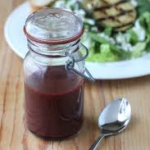
Ingredients:
1tsp Dijon mustard
1tbsp blackberry vinegar (we like Scrubby Oak or you can make your own with our simple recipe below)
3tbsp Farrington’s Mellow Yellow Rapeseed Oil
Method:
Mix the blackberry vinegar and dijon mustard in a screw top jar, then put the lid on and shake well. Add the Mellow Yellow (put the lid on again!) and shake vigorously again to get it all thoroughly blended. Adjust seasoning to taste. Store in the fridge and enjoy.
For the Blackberry Vinegar, steep blackberries with an equal quantity of cider vinegar for 5-10 days. After this time, strain the liquid and boil for 8-10 minutes with 450g of sugar per 700ml of liquid.
Sweet Oriental Dressing
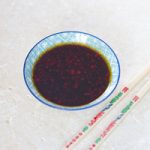
Ingredients:
1tbsp runny honey
½ chopped red chilli
1 tbsp dark soy sauce
1 tbsp Mellow Yellow Rapeseed Oil
Method:
Combine the runny honey, chopped chilli, dark soy sauce and Mellow Yellow Rapeseed Oil. Stir vigorously until combined.
Did you know that we make our own range of salad dressings?
– Honey & Mustard Dressing – Superbly balanced sweetness with a fantastic bite. Use on anything from a salad to a sausage. Try Honey & Mustard on our Asparagus, Salmon and Avocado Bruschetta as a tasty lunch or light dinner, the salmon and avocado perfectly complement the sweet and sharp flavour from honey and mustard.
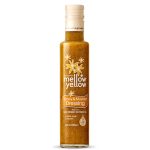
– Classic Vinaigrette – The ultimate salad dressing with a sharp tangy taste, perfect for a green salad. Try Classic Vinaigrette in this recipe for a Protein Power Pot with quinoa, watercress, egg and tuna for a filling lunch recipe ideal for taking to work.
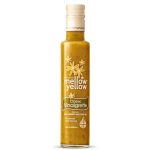
– Balsamic Dressing – A modern British twist on the classic Italian dressing, made with Aspall’s Apple Balsamic Vinegar for a deliciously fruity flavour. This dressing is perfect with Tomato, Basil and Mozzarella to highlight the delicious Italian flavour of the balsamic.
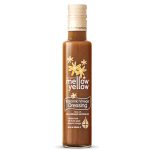
Find more salad recipes on the Recipe section of our website.
We all know that food waste is a growing problem. In 2016, British shoppers threw away a shocking 160 million bananas! Alhough they may be the countries favourite fruit to snack on, they are also the most wasted. Unfortunately, 1 in 3 people will throw away a banana if it has a bruise or even a single black mark on its skin. It really is bananas!
Here at Farrington’s, we think that one of the best ways to cut down food waste is to shout about all the amazing recipes that you can use these ingredients in, rather than throwing them away. So, here are our Top 5 Leftover Banana Recipes…
If you’re not ready to make any of these recipes straight away, just peel and slice your bananas, and then freeze them in a Tupperware box or freezer bag. Once in slices, the frozen bananas are perfect for smoothies or any of our other recipes. You’ll have banana ready to go in your freezer for whenever you fancy making one of these recipes!
Banana Bread – The original way to use up bananas. Banana bread is a regular in the Mellow Yellow kitchen as it is such a simple cake to bake and gives truly delicious results! We have two well loved recipes, click here for our traditional recipe and here for our vegan alternative!
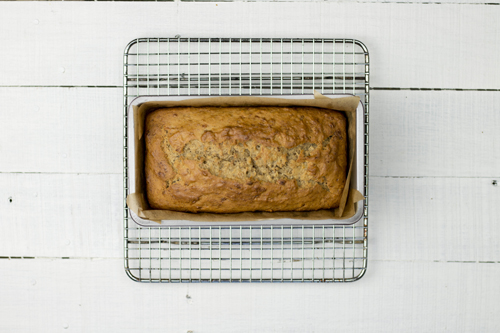
Banana Ice-Cream – Freeze bananas as they go past the point you would like to eat them. Cut the frozen bananas into a food processor and add 1 generous tablespoon of vanilla yogurt (or any other type of dairy like quark, double cream, forage frais) per banana. Blitz until smooth. Each banana creates two scoops of ice cream. Serve immediately. (Preferably with warm brownies.)
Vegan Pancakes – If you want to try vegan pancakes, ripe bananas are perfect. Simply mash 1 banana and whisk together with 150ml coconut milk (or any other milk alternative you like), 100g plain flour and ½ tsp baking powder. This mixture is meant to be pourable so if it’s too thick just add a splash more milk, or if too runny add another spoonful of flour. Heat up some Mellow Yellow Rapeseed Oil in a frying pan and dollop large tablespoons of your mixture in to cook. Cook each pancake for 2-3 minutes, flipping when bubbles begin to appear on top, then cook for a further 2 minutes. Serve your pancakes in a big stack with your choice of sauce drizzled over.
Carrot and Banana Cake – Our oldest and most loved cake recipe. So easy, delicious and freezes well – a total favourite. The carrot and banana cake is a great afternoon tea sweet choice and a fantastic way to cut down on your food waste by using bananas rather than throwing them away. Find the recipe here.
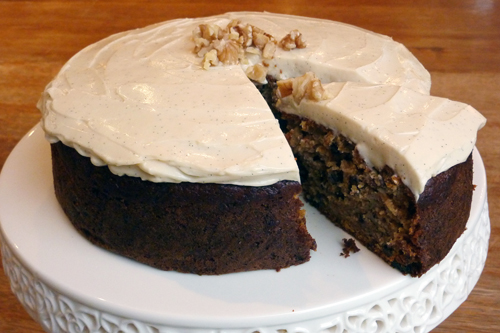
Smoothies – Overripe or frozen bananas are perfect for smoothies! Simply add them to your blender with any other fruit, milk or yogurt you have and after a a quick blitz, you’ll have a delicious and filling breakfast smoothie!
What do you use your leftover bananas for? Share your recipes with us on Facebook, Twitter or Instagram!
We spoke to chef Gavin Austin about how and why he uses Farrington’s Mellow Yellow Cold Pressed Rapeseed Oil…
1. Can you tell us a bit more about yourself and what you do at Northampton Saints?
I’m originally from North Norfolk. I’ve been cooking for over twenty years and am currently the team performance chef at the Northampton Saints.
2. How did you first hear of Farrington’s Mellow Yellow Cold Pressed Rapeseed Oil?
It was a good while ago now! When I moved down to Northamptonshire to work at Oundle Mill, I heard about Mellow Yellow at the Northamptonshire Food Awards. This must have been about 6 years ago and I have been using it ever since.
3. What were your reasons for switching to Mellow Yellow?
Well it’s the ultimate oil. I don’t think anything else is as good. It’s really versatile for my uses and really good for you.
4. What do you use Mellow Yellow for now?
I use it for everything! Dressings, cooking breakfast, lunch, I even add it into desserts. The flavour works brilliantly with dark chocolate, orange and sea salt.
5. What would you say is the biggest benefit to using Mellow Yellow Cold Pressed Rapeseed Oil?
It’s healthy and not full of rubbish. Plus it’s local! I like to support independent local businesses so Farrington’s is perfect.
6. What is your favourite recipe to use Mellow Yellow in?
That’s a really hard question as I pretty much use it in everything. It goes into probably 95% of my cooking. Vegetables, chicken, scrambled eggs, caponata, etc, all use it. It’s just so versatile so I couldn’t pick a favourite.
7. We know you try to encourage the players to cook at home themselves, who is the best or most creative home-cook?
The names that spring to mind are Christian Day and Jamie Gibson, they stand out as two of the most foodie players.
8. As the weather is pretty cold at the moment, what’s your go-to winter warming comfort food dish?
Anything slow cooked!
If you enjoyed this interview with chef Gavin Austin, why not watch our video with him at the Saints last year: https://www.youtube.com/watch?v=DPcDwXTvrgg
I have been asked in the past what we do in the winter months. People comment, saying “Surely as an arable farmer, you plant the crops in the autumn, go away on holiday and come back the following summer ready to harvest them?” Nice thought, but I’m afraid the reality is a little different.
Admittedly, on an arable farm, where we only grow crops and do not have any livestock to look after, the winter months are quiet and it can be an opportunity to relax on a holiday if you wish. However, I have always found it the time of year for research, planning and projects, of which we have done many over the years. Back around the millennium, I remember spending many winter months researching the viability of creating a cold pressed rapeseed oil business on our farm, as a diversification project on something I found very interesting and to hopefully bring a little extra income to the family business. Looking back, I think this was time very well spent.
Of course winter is an ideal time for us to service all the farm machinery in preparation for the coming spring and summer months when we will want it to work long and hard without too many breakdowns. We have done many building projects over the years, both for new machinery ideas and for buildings on the farm. Some examples have been building a new trailer, or creating a water bowser. In the past, when I was a young boy and even before I was born, my Father and Grandfather were at their happiest creating new weird and wonderful machines in the farm workshop. Two of the most extravagant examples included a six-wheel drive tractor, converted from a World War II army fire engine. I remember going across the fields with them on this machine, before it finally over heated and was retired in the nettles. Their most famous project was when they took two normal tractors, replaced the standard engines with more powerful versions, before removing the front axils off both tractors and joining them together to make an articulated four-wheel drive machine, driven by one person from the back tractor. This was certainly cutting-edge engineering in its day, that was later copied and refined by machinery manufacturers in future years.
We have restored our beautiful traditional barns and converted them from redundant old farm buildings into offices, including our farm office today. New modern grain stores have been designed and built to cope with storing and drying the grain at the speed the modern combine harvester brings the crops in. Over the years, we have built all of the factory and some of the machinery inside it for Farrington Oils. Some of these projects seem to start as winter job ideas, but tend to stretch through other months of the year and before long take on a whole life of their own. The most recent being the latest expansion of Farrington Oils to create a new toilet and changing facilities, as well as extra space to mix our salad dressings and store ingredients. We have even made a little development kitchen in which Eli is currently very busy with her trusted jam jar creating some possible exciting new dressing recipes. This whole project started in April last year, we had a few weeks break for harvest to take place, before finally finishing the project just before Christmas.
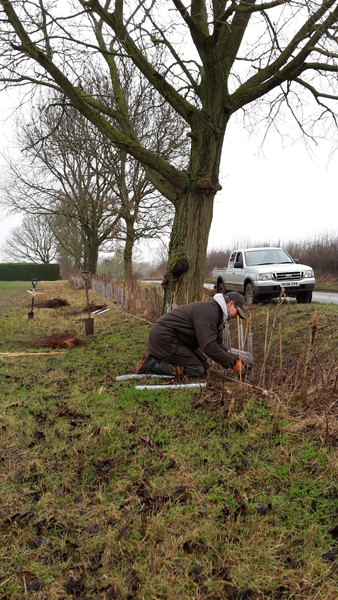
Marvin planting saplings in Jan 2018
The other main type of project we have done during winter over the years is planting trees and hedges. We have literally planted thousands of trees and several kilometres of hedges since 1987 when my Father planted the first couple of spinneys on the farm. They are now well established, adding beauty and wildlife habitats to the landscape. This year we have been at it again. Marvin spent the time before Christmas with the chainsaw, thinning out dead wood from a copse area and old hedge, in readiness to replant with new young saplings in the first weeks of January. He has now created a few hundred more metres of hedgerow – Father and I have helped him with the spade to get some of the 2,000 hedge and tree plants put into the soil. We will have to weed around the young saplings for the first two years, after that they will hopefully grow and thrive, adding more beauty and wildlife habitat for many years to come. Additionally, we have a pile of wood ready to cut up for the fire to keep us warm at home next year.
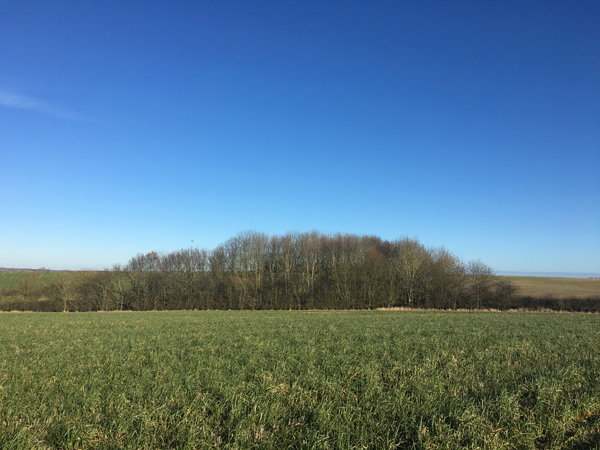
Spinney on Bottom Farm that was planted in 1987, photo taken Feb 2018.
Although winter on Bottom Farm may not be spent on a combine harvester or tractor, it certainly is far from quiet!
Did you know that cold pressed rapeseed oil is a great, heart-happy oil? Are you looking to improve your health? Well we have one simple change for you that will help you with this goal. Mellow Yellow Cold Pressed Rapeseed Oil is a brilliantly healthy, British cooking oil that is grown, pressed and bottled in Northamptonshire. Read on to find out more about all the fantastic health benefits of cold pressed rapeseed oil…
Top 4 Health Benefits of Cold Pressed Rapeseed Oil
Low saturated fat
A balance of Omega 3 and Omega 6
Contains Vitamin E
Naturally occurring plant sterols
Low saturated fat
Saturated fat is usually found in high levels in fatty meats, full fat dairy products, coconut oil and lard. For many years, health professionals have advised against consuming high amounts of saturated fat as they have been shown to raise your LDL (Low Density Lipoprotein) levels. LDL is known as ‘bad’ cholesterol as high levels of LDL blood cholesterol increases the risk of heart disease by building up in our arteries and causing them to narrow. Cold pressed rapeseed oil, however, has very low levels of saturated fat. This is one of the major health benefits of cold pressed rapeseed oil! For more information from the British Heart Foundation, click here.
A balance of Omega 3 & Omega 6
Mellow Yellow Cold Pressed Rapeseed Oil contains both Omega 3 and Omega 6. These are essential fatty acids that the body is unable to produce itself so we need to ensure that we consume these in our diet. These two essential fatty acids contribute to brain development, growth and maintaining a healthy immune system. It is important that we consume these two fatty acids in the correct ratio as found in cold pressed rapeseed oil. It is this ratio that makes this one of our top health benefits of cold pressed rapeseed oil. We have more information on Omega 3 and 6 on our Health and Nutrition page.
Contains Vitamin E
Another of the health benefits of cold pressed rapeseed oil is that it contains vitamin E. Vitamin E occurs naturally in cold pressed rapeseed oil and is needed for a strong immune system and healthy eyes and skin.
Naturally occurring plant sterols
Last but not least in our top health benefits of cold pressed rapeseed oil are the naturally occurring plant sterols found in this brilliant oil. Plant sterols are fat-soluble compounds found in some vegetables, nuts and seeds, including rapeseed. They are similar in structure to cholesterol therefore when eaten, plant sterols compete with cholesterol for absorption into the bloodstream. Our bodies find it easier to absorb plant sterols as they block the cholesterol from being absorbed. This results in the cholesterol passing through and out of the body via the stool. Find more information here.
Comparison of oils:
With these brilliant health benefits of cold pressed rapeseed oil, it’s easy to see why so many people are swapping to Mellow Yellow Rapeseed Oil! Find out where to buy here.
If you want to know more about cold pressed rapeseed oil, how we produce it, how it grows, the simple way we press the seeds to produce our cold pressed rapeseed oil and more on what is so special about cold pressed rapeseed oil, have a look at this article!
For recipe inspiration on what to cook with cold pressed rapeseed oil, visit our Recipe page here.
Christmas is just around the corner so now is the perfect time to share with you some of our favourite recipes, hints and tips for festive cooking! The Mellow Yellow team has all contributed a recipe or a favourite tip to help you ensure this is the best Christmas yet.
Tips For Roasties…
Roast potatoes – Make sure you use Farrington’s Mellow Yellow Rapeseed Oil. Thanks to its high smoke point, it helps you achieve extra crispy roast potatoes as it performs brilliantly at high temperatures. Take a look at Joanna’s freezer tip below if you want to save time on your roasties.
To save time on the big day, parboil and freeze your potatoes a few days earlier. Then once your meat is out of the oven, heat up Farrington’s Mellow Yellow Rapeseed Oil in a roasting dish until nice and hot, then put in your parboiled potatoes from frozen. This will make EVEN crispier roast potatoes, and save you a bit of space on the hob. (As heard by Joanna on Radio 2.)
Mince Pies
Mince Pies – Homemade mince pies really are so much better than shop bought ones, plus our recipe has a secret addition of chopped apple in the mincemeat that elevates the flavour!
A different way to eat a mince pie – Heat it up and take the lid off, pop a slice of stilton inside while it’s still hot then put the lid back on. Enjoy your sweet and savoury treat! (Rachel promises us this is delicious.)
Any other tips?
Use roasting bags for a juicy turkey and start with a clean oven to make the clean up easier! If you’re not feeding the five thousand, buy a turkey crown as it’s solid meat, takes less time and fits in a roasting bag perfectly! (Jo’s top tips for a stress-free Christmas!)
Leftover Christmas Cake? Don’t waste it, instead cut into large chunks, cover with clingfilm then foil, and freeze. (Gina’s favourite way to keep Christmas going until Spring)
Chestnut Stuffing – Emily’s Christmas dinner highlight
Ingredients:
100g bacon
50ml Mellow Yellow Rapeseed Oil, plus extra for greasing tin
1 onion peeled and chopped finely
150g sliced mushrooms
250g chestnut puree
250g tin whole chestnuts ground like breadcrumbs
Small tin or tube of liver pate
3 large cloves of garlic chopped finely
1 tablespoon (15ml) dried oregano
50g fresh breadcrumbs
1 lightly whisked egg
Salt and black pepper to taste
Method:
Cut any rind off the bacon and chop into small cubes. Put Mellow Yellow Rapeseed Oil into pan and fry bacon and onion for about 3-5 minutes. Transfer to a bowl with all the fat and stir in well with all the other ingredients and check seasoning. Grease baking tin with Mellow Yellow oil and cook in a preheated oven at 180c for 45 minutes.
Boozy Cranberry sauce – Richard’s way to add a kick to lunch time
This is one to start this year ready for next Christmas as it needs 10-12 months to infuse. But its a great thing to start during any time off you have this Christmas!
Firstly make cranberry Gin as you would sloe gin:
Ingredients:
450g/1lb Cranberries, frozen will work
225g/8oz caster sugar
1 litre/1¾ pint gin
Method:
Prick the skin of the cranberries all over with a clean needle and put in a large sterilised jar. Pour in the sugar and the gin, seal tightly and shake well. Store in a cool, dark cupboard and shake every other day for a week. Then shake once a week for at least two months. After 10-12 months strain the cranberry gin through muslin into a sterilised bottle . Once you have strained the gin, cook the soaked cranberries down to a jam like consistency adding a little salt and or sugar to taste. And there you go, delicious homemade boozy cranberry sauce, plus cranberry gin for a festive G&T!
Find more recipes here.
Some days, events in the news or experiences of friends near to us, remind us how lucky we are. I am fortunate to have the support of a loving and healthy family around me, great friends, a stable and exciting career, with some great people who help make Farrington’s Mellow Yellow the success it is. Of course, there are days when life is a bit of a struggle and, as Eli will testify, I can get a bit grumpy and stressed on occasion. However, compared to some people in the world, we have a pretty good lot.
I originally looked at starting Farrington Oils as a farm diversification. The aim was to try and create a more sustainable income so Eli and I could continue to live and work at Bottom Farm where our (at the time) young children could grow up. With the support of both of our parents, not to mention years of hard work, Farrington’s Mellow Yellow has become a great success, far exceeding what I originally envisaged. I am very proud of what we have achieved, not only providing Eli and I with a stable income, but also a livelihood for the small, dedicated team that work with us.
Our success is very much thanks to the many loyal customers who buy our products, some of whom have supported us since I first started making Britain’s original farm to bottle cold pressed rapeseed oil back in 2005. If I think about it too much, it is rather humbling and, perhaps because of this, I am keen that we should share some of our success with the community around us. Over the years, we have been proud to support several good causes.
I have always been keen to support young people, to try and inspire them in a small way, so they will have the confidence to ‘have a go’ and possibly stretch themselves to reach for goals they may not have thought they could achieve. This comes to life in some of the LEAF talks I hold at the farm or in schools. I love it when I talk about some of my experiences, the challenges and successes in starting and running your own business. I remember on one school visit, a girl asking if I was famous because there was a picture of my face was on our bottle of oil, and the excitement in the classroom that with a bit of hard work and passion they too might start something successful one day.
We have supported some charities close to our hearts over the years. The Faraway Children’s Charity is named after one of Enid Blyton’s children’s books: ‘The Faraway Tree’ which tells the story of a group of children who discover a magical tree where they are safe and happy. This great local charity came to our attention as Eli and I were shocked by the amount of absolute poverty all around us, in our supposed modern, developed economy. Volunteers help young vulnerable people in Northamptonshire to “survive, thrive and smile”. The charity was set up to support children, to give them simple things such as toiletries and clothing for example, or an Easter egg at Easter; to show them love and hopefully put a smile on their faces.
Another charity we have supported over the years is the Batten Disease Family Association (BDFA). This cause is incredibly close to our hearts; Batten Disease is a very rare and cruel neurological disease with very little known about it. There are only around 150 sufferers in the UK, including our close family friend Laura. Laura is a fantastic eighteen year old, crippled by the disease, but cared for with the love and help of her family. The BDFA helps support such families and to try and raise awareness for research into Battens.
We have also supported Children in Need by attending CarFest at Laverstoke Park each year and supplying the oil for their Foodie Workshops, which are always good fun. More generally, we always try to support local charity fundraisers and events when a request comes through for some Mellow Yellow products as a raffle prize, for example. Recently Farrington’s Mellow Yellow supported the Hargrave Music Festival. For four days in September, our sleepy little village played host to a series of classical concerts, opera performances and cabarets performed by world class acts. Not something you would expect in Hargrave, but a great weekend to put our community on the map. I even read on one of the performer’s credits that she had performed in Sydney, New York, London and Hargrave!
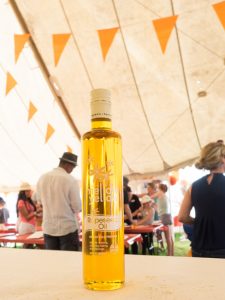
Finally, we are very proud to support our local Premiership rugby team, Northampton Saints. The club’s chef, Gavin Austin, has always been a great supporter of Mellow Yellow and when he moved to the Saints, he wanted to take his trusted oil with him. Our healthy range of oil, mayonnaise and salad dressings are now an integral part of these elite athletes’ diets.
Whatever you like to support, I greatly enjoy being in a position to be able to help others. In the past people have helped, inspired and supported me over the years. Besides, as well as giving you that warm fuzzy feeling when you support a cause you believe in, we have also had a bit of fun in doing so. Have a look at our Oilslide Challenge to see what I mean.


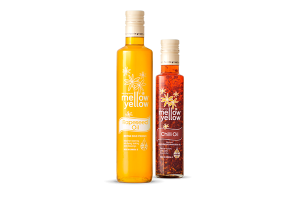 Oils
Oils Rapeseed Oil
Rapeseed Oil Chili Oil
Chili Oil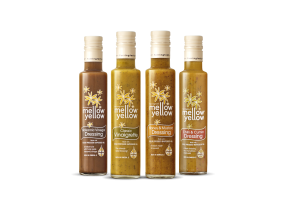 Dressings
Dressings Classic Vinaigrette
Classic Vinaigrette Balsamic Dressing
Balsamic Dressing Honey & Mustard
Honey & Mustard Chili & Cumin
Chili & Cumin